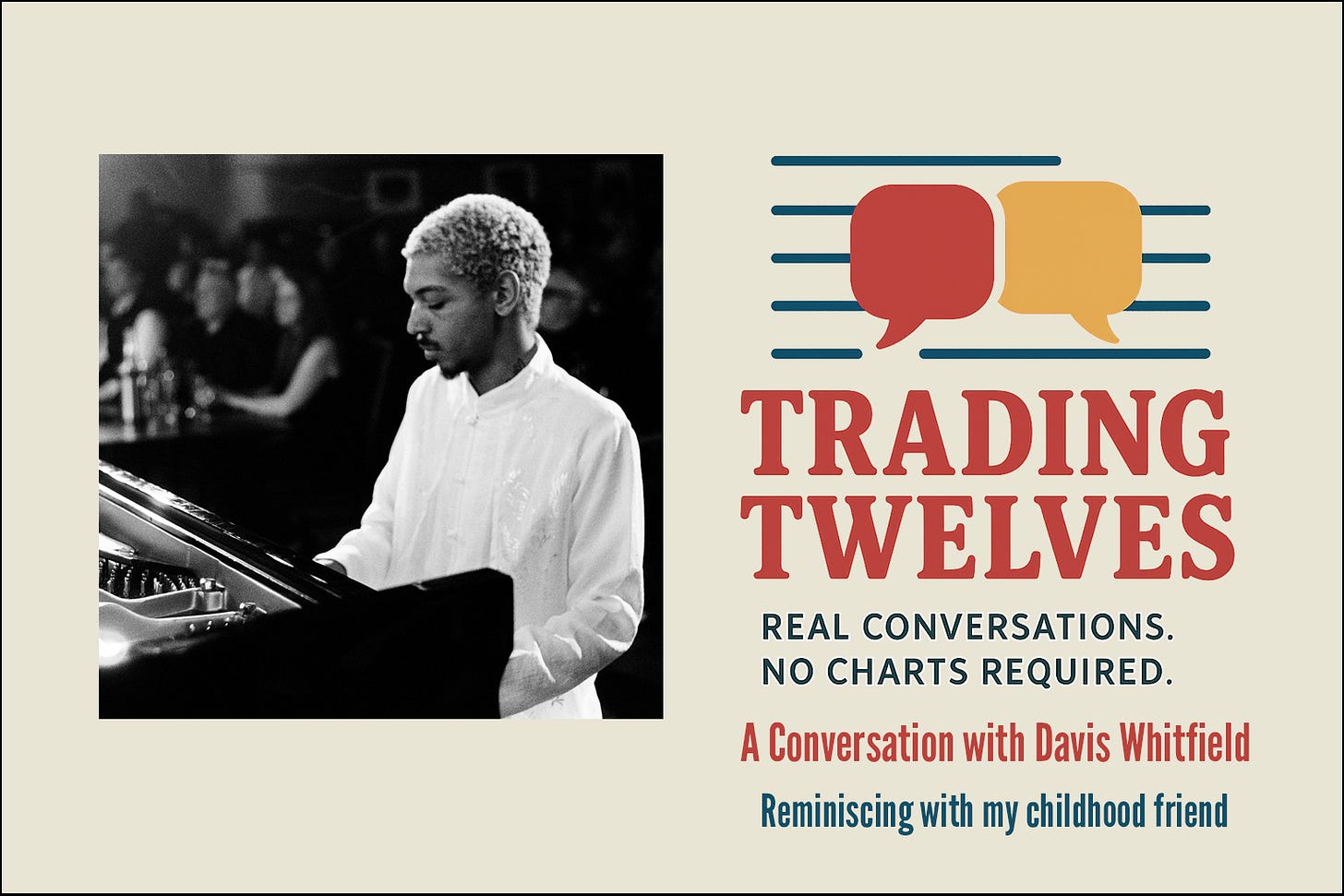A Conversation with Davis Whitfield
Jazz pianist Davis Whitfield talks on his childhood in Jersey City, the music and musicians that shaped him, and what it means for him to carry the name Whitfield.
My family moved to Jersey City in the summer of 2000 when my father started to work for Jazz at Lincoln Center in New York City. It wasn’t until the fall of 2001, that it began to feel like home. I was entering third grade and had one of my most influential elementary school teachers, Ms. Feskin. She nurtured creativity in all of her students and encou…



